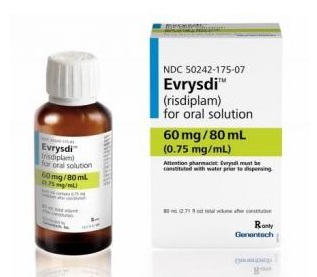Roche’s new spinal muscular atrophy (SMA) oral treatment Evrysdi (ingredient: risdiplam) proved the benefit of convenience and cost reduction for patients through new data.
However, the discussion over reimbursement for Evrysdi has dragged on for over one year and a half since the drug’s arrival in Korea, frustrating Korean SMA patients.

Roche recently released data from the JEWELFISH study, which evaluated the effect of switching to Evrysdi in SMA patients with treatment history.
The study drew attention because it involved the widest population among SMA-related trials. Roche announced the study's interim results at the 2022 Muscular Dystrophy Association Clinical & Scientific Conference in March.
The JEWELFISH trial evaluated Evrysdi in 174 patients aged six months to 60 years with Type 1-3 SMA who have been treated before. The primary endpoint was set as Evrysdi’s safety and pharmacokinetics at month 24.
The interim results at month 12 showed that Everysdi elevated and maintained the level of SMN protein concentration regardless of drugs previously administered.
Also, Evrysdi stabilized overall motor function at month 12, measured by the Motor Function Measure 32 (MFM-32) score from baseline.
profiles were similar to those demonstrated in studies of Evrysdi on treatment-naïve SMA patients. In addition, the study did not report any treatment discontinuation caused by drug-related adverse events.
SMA patients in the JEWELFISH study switched to Evrysdi from the existing treatment for various reasons, such as difficulty in continuing intrathecal injection due to scoliosis or spinal surgery, discontinued clinical trials of other therapies, the anticipation of additional treatment effects, and preference of caregivers. With the results, researchers evaluated that Everysdi reflected the clinically unmet need.
Out of 76 patients who had received intrathecal therapy, 31 percent said they switched to Evrysdi because it was difficult to receive intrathecal injections due to scoliosis or spinal surgery.
As Evrysdi can be taken orally once a day, it is necessary for patients who find it difficult to get intrathecal injections.
As patients do not have to wait for intrathecal injections, oral treatment can reduce socio-economic burdens such as expenses for hospitalization, discontinued work, transportation, and nursing, Roche said. Also, the treatment can be customized according to age and weight, which can save the drug cost.
However, in Korea, Evrysdi is not covered by health insurance, which makes it difficult for SMA patients to use it.
Evrysdi obtained the regulatory nod in November 2020. Roche applied for reimbursement for Evrysdi in July 2021, but the talks for health insurance coverage have not progressed so far.
“SMA is a progressive disease that gradually causes muscles atrophy, so it is important to get treatment at the right time,” an SMA patient said. “If you miss the ‘golden hour’ of treatment, it will become difficult to move around, such as eating, washing, and going to the bathroom. You will have restrictions in daily activities such as study and work.”
If the government confirmed Evrysdi’s efficacy and safety sufficiently, it should allow the drug reimbursement using the same criteria for reimbursement for other drugs, the patient added.

